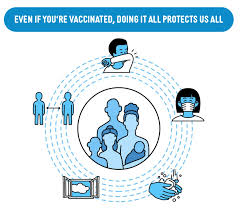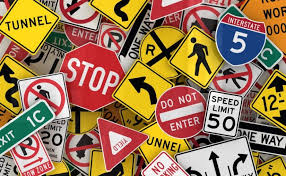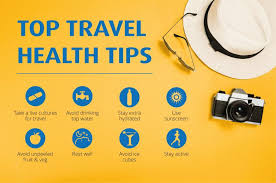Traveling to Asia in 2024 can be an exciting adventure, offering a rich tapestry of cultures, landscapes, and experiences. However, ensuring your health and safety is crucial for a smooth and enjoyable journey. From navigating health risks to staying safe in diverse environments, here’s a comprehensive guide to help you prepare for your trip across Asia this year.
1. Vaccinations and Health Precautions

Essential Vaccinations
Before traveling to Asia, make sure your vaccinations are up-to-date. Commonly recommended vaccines include:
- Hepatitis A and B: Essential for protection against viral infections transmitted through contaminated food and water.
- Typhoid Fever: Particularly important if you plan to visit rural areas or less developed regions.
- Japanese Encephalitis: Recommended for long-term stays or if traveling to rural areas in certain countries.
- Malaria Prophylaxis: If traveling to areas where malaria is prevalent, such as parts of Southeast Asia, consider taking antimalarial medication.
Consult with a travel health clinic or your healthcare provider several weeks before your departure to ensure you receive the necessary vaccinations.
Health Insurance
Secure comprehensive travel health insurance that covers medical emergencies, including hospitalization and evacuation. Check the policy details to ensure it includes coverage for health issues specific to the regions you’ll visit.
2. Food and Water Safety
Eating Safely
Food safety is a significant concern while traveling in Asia. To avoid foodborne illnesses:
- Eat Cooked Food: Choose freshly cooked food and avoid raw or undercooked dishes.
- Drink Bottled Water: Stick to bottled or boiled water. Avoid ice in drinks as it may be made from contaminated water.
- Choose Reputable Establishments: Dine at well-known restaurants or those recommended by trusted sources.
Dealing with Foodborne Illnesses
In case you experience symptoms of foodborne illnesses such as nausea, vomiting, or diarrhea:
- Stay Hydrated: Drink plenty of bottled water or oral rehydration solutions to prevent dehydration.
- Seek Medical Help: If symptoms persist or worsen, consult a local healthcare provider.
3. Personal Safety and Security
General Safety Tips
- Avoid Risky Areas: Stay informed about the safety situation in your destination. Avoid areas with known political instability or high crime rates.
- Keep Valuables Safe: Use hotel safes for important documents and valuables. Avoid displaying expensive items or large amounts of cash in public.
- Be Aware of Scams: Be cautious of common scams, such as overly friendly strangers offering unsolicited assistance or deals that seem too good to be true.
Emergency Contacts
- Local Emergency Numbers: Familiarize yourself with local emergency contact numbers for police, medical services, and your country’s embassy or consulate.
- Travel Alerts: Register with your country’s embassy or consulate for travel alerts and updates about your destination.
4. Transportation Safety

Public Transport
- Use Reputable Services: Opt for reputable public transportation services and avoid unofficial taxis or rideshares.
- Stay Alert: Be vigilant of your belongings and surroundings, especially in crowded areas.
Driving
- Check Local Driving Laws: If you plan to drive, ensure you’re familiar with local driving regulations and conditions. Some countries may have different rules or driving styles.
- Renting Vehicles: Use well-known rental companies and check the condition of the vehicle before driving.
5. Climate and Environmental Health
Weather-Related Precautions
- Heat and Humidity: In tropical and subtropical regions, stay hydrated, wear light clothing, and use sunscreen to protect yourself from sunburn.
- Monsoon Season: During the monsoon season, be aware of potential flooding and travel disruptions. Plan your travel routes and accommodations accordingly.
Air Quality
- Pollution Awareness: In some urban areas, air quality can be poor. Check local air quality reports and avoid outdoor activities on days with high pollution levels.
6. Cultural Sensitivity and Local Customs
Respect Local Customs
- Dress Appropriately: Dress modestly, especially when visiting religious sites or rural areas. Follow local dress codes and customs.
- Follow Etiquette: Familiarize yourself with local customs and etiquette. This includes proper behavior in religious places, dining manners, and greeting practices.
Communication and Interaction
- Learn Basic Phrases: Learning a few basic phrases in the local language can enhance your interactions and show respect for local culture.
- Use Translation Apps: Translation apps can be helpful for navigating language barriers and communicating effectively.
7. Preparing for Medical Emergencies
First Aid Kit
- Pack Essentials: Carry a basic first aid kit with items such as band-aids, antiseptic wipes, pain relievers, and any personal medications you may need.
Local Healthcare Services
- Research Healthcare Facilities: Know the locations of reputable hospitals or clinics in your destination. Some areas may have limited medical facilities, so plan accordingly.
8. Travel Health Tips

Jet Lag and Travel Fatigue
- Adjust Sleep Schedule: Gradually adjust your sleep schedule before your trip to reduce the effects of jet lag. Stay hydrated and avoid excessive caffeine or alcohol.
Vaccination Records
- Carry Documentation: Keep a record of your vaccinations and any required health documents. Some countries may request proof of vaccination for entry.
Conclusion
Traveling to Asia in 2024 promises incredible experiences and adventures, but taking the necessary health and safety precautions is essential for a worry-free journey. By preparing in advance, staying informed, and following these guidelines, you can ensure a safe and enjoyable trip across this diverse and vibrant continent. Embrace the cultural richness and natural beauty of Asia with confidence, knowing you are well-prepared for a memorable adventure.



